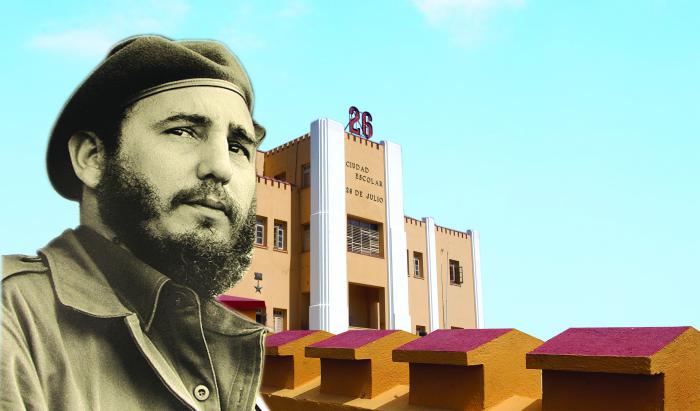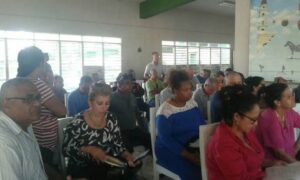Cuba faces another moment of profound historical significance demanding unity and steadfastness. As the nation commemorates the July 26, 1953 attacks on Moncada and Carlos Manuel de Céspedes barracks, the legacy of the Moncada combatants must resonate more powerfully than ever.
The nation is again under threat, decades after April 1960 when Lester D. Mallory, US Deputy Assistant Secretary of State under Eisenhower, authored a secret memorandum stating: «The majority of Cubans support Castro… the only foreseeable means of alienating internal support is through disenchantment and dissatisfaction based on economic dissatisfaction and material hardships…»
He advised: «(…) we must promptly use all possible means to weaken Cuba’s economic life… a line of action that, while as adroit and inconspicuous as possible, makes the greatest inroads in denying money and supplies to Cuba, to decrease monetary and real wages, to bring about hunger, desperation and overthrow of government.»
Modern doctrines of media warfare and the criminal blockade now seek to fracture Cuba’s social project.
Amid these exceptional circumstances, we mark the 72nd anniversary of the attacks. Honoring this date requires unwavering resistance against imperial forces attempting to destroy the Revolution.
This July 26th recalls young lawyer Fidel Castro addressing revolutionaries at Siboney Farm near Santiago: «You may win or be defeated… but regardless, the movement will triumph. This act will set an example for Cuba.» He led a hundred youths storming Moncada barracks while simultaneous attacks targeted Bayamo’s Carlos Manuel de Céspedes fortress.
Fidel commanded the assault on Moncada’s Post Three. Raúl Castro secured the Palace of Justice. Abel Santamaría targeted the Saturnino Lora hospital. Surprise was lost when a patrol clashed with combatants, triggering full-scale combat where garrison forces repelled attackers through superior numbers and arms.
At dawn, dictator Fulgencio Batista ordered unrestricted execution of prisoners. Soldiers murdered over 50 revolutionaries in the barracks courtyard – many at point-blank range before public view. Few survivors like Fidel, Raúl, and Juan Almeida were imprisoned.
Santiagueros witnessed the military’s blood orgy and mobilized to aid survivors. The Bayamo assault also failed when initial plans collapsed under garrison fire, forcing retreat.
The trial of Moncada combatants and Fidel’s defense speech «History Will Absolve Me» became the political manifesto mobilizing popular forces against the dictatorship under the July 26th Movement – named for the heroic deed.
Cuban history transformed after Moncada. The myth of invincible repressive armies was shattered.
The Moncada combatants’ example – overcoming seemingly insurmountable setbacks – lives in generations of Cubans confronting destabilization and the tightened US economic, commercial, and financial blockade today.
(Author: Jorge Wejebe Cobo)




